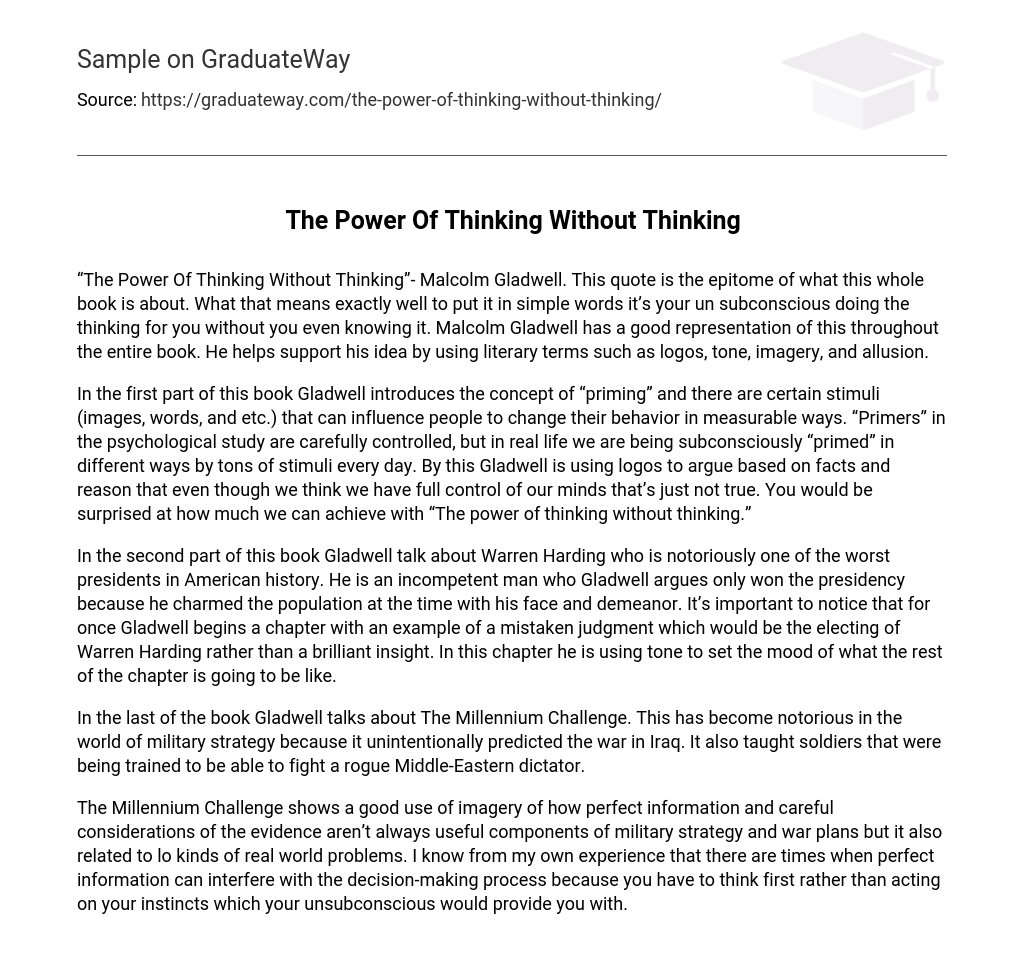Malcolm Gladwell has a good representation of this throughout the entire book. He helps support his idea by using literary terms such as logos, tone, imagery, and allusion. In the first part of this book Gladwell introduces the concept of “priming” and there are certain stimuli (images, words, and etc.) that can influence people to change their behavior in measurable ways.
“Primers” in the psychological study are carefully controlled, but in real life we are being subconsciously “primed” in different ways by tons of stimuli every day. By this Gladwell is using logos to argue based on facts and reason that even though we think we have full control of our minds that’s just not true. You would be surprised at how much we can achieve with “The power of thinking without thinking.”
In the second part of this book Gladwell talk about Warren Harding who is notoriously one of the worst presidents in American history. He is an incompetent man who Gladwell argues only won the presidency because he charmed the population at the time with his face and demeanor. It’s important to notice that for once Gladwell begins a chapter with an example of a mistaken judgment which would be the electing of Warren Harding rather than a brilliant insight. In this chapter he is using tone to set the mood of what the rest of the chapter is going to be like.
In the last of the book Gladwell talks about The Millennium Challenge. This has become notorious in the world of military strategy because it unintentionally predicted the war in Iraq. It also taught soldiers that were being trained to be able to fight a rogue Middle-Eastern dictator.
The Millennium Challenge shows a good use of imagery of how perfect information and careful considerations of the evidence aren’t always useful components of military strategy and war plans but it also related to lo kinds of real world problems. I know from my own experience that there are times when perfect information can interfere with the decision-making process because you have to think first rather than acting on your instincts which your unsubconscious would provide you with.





